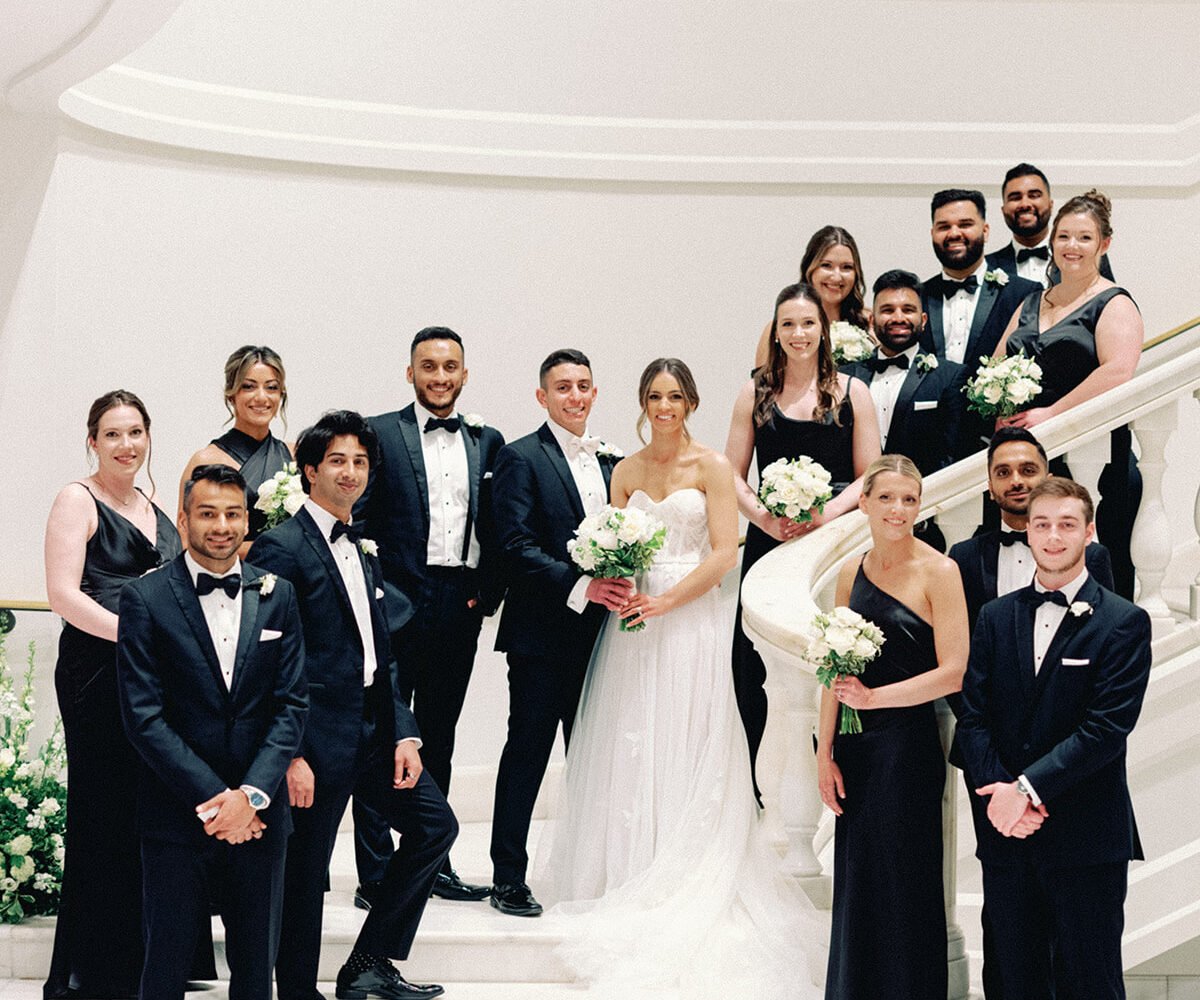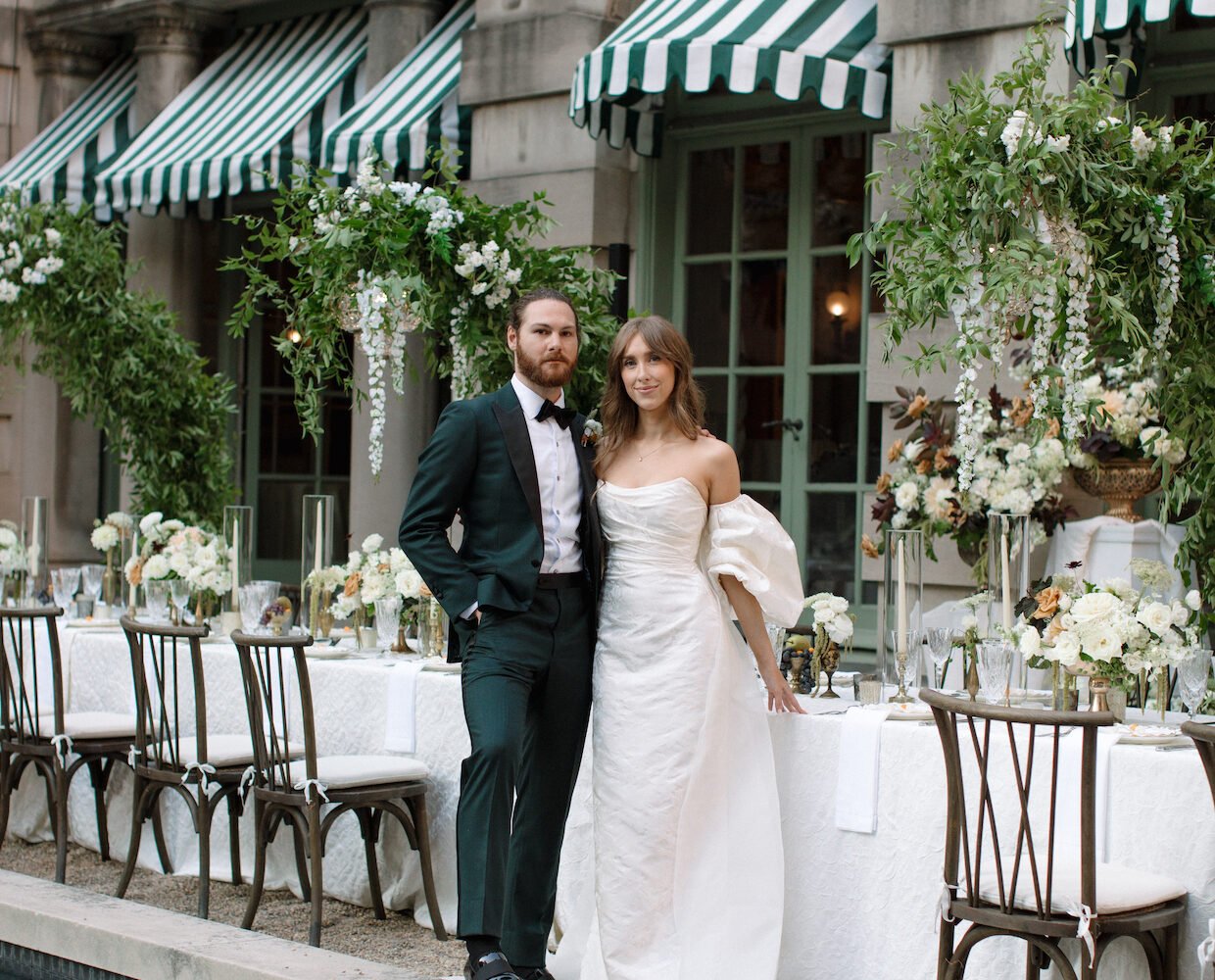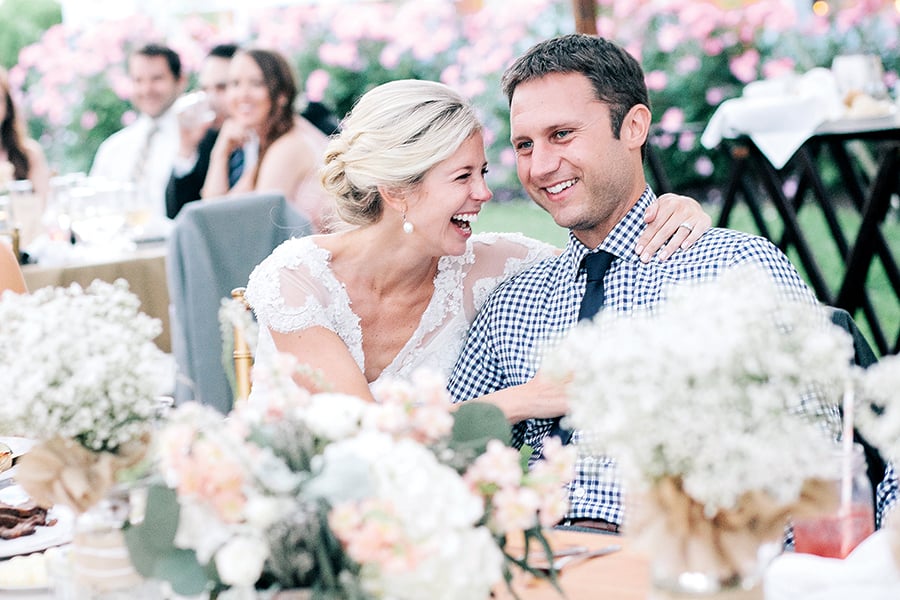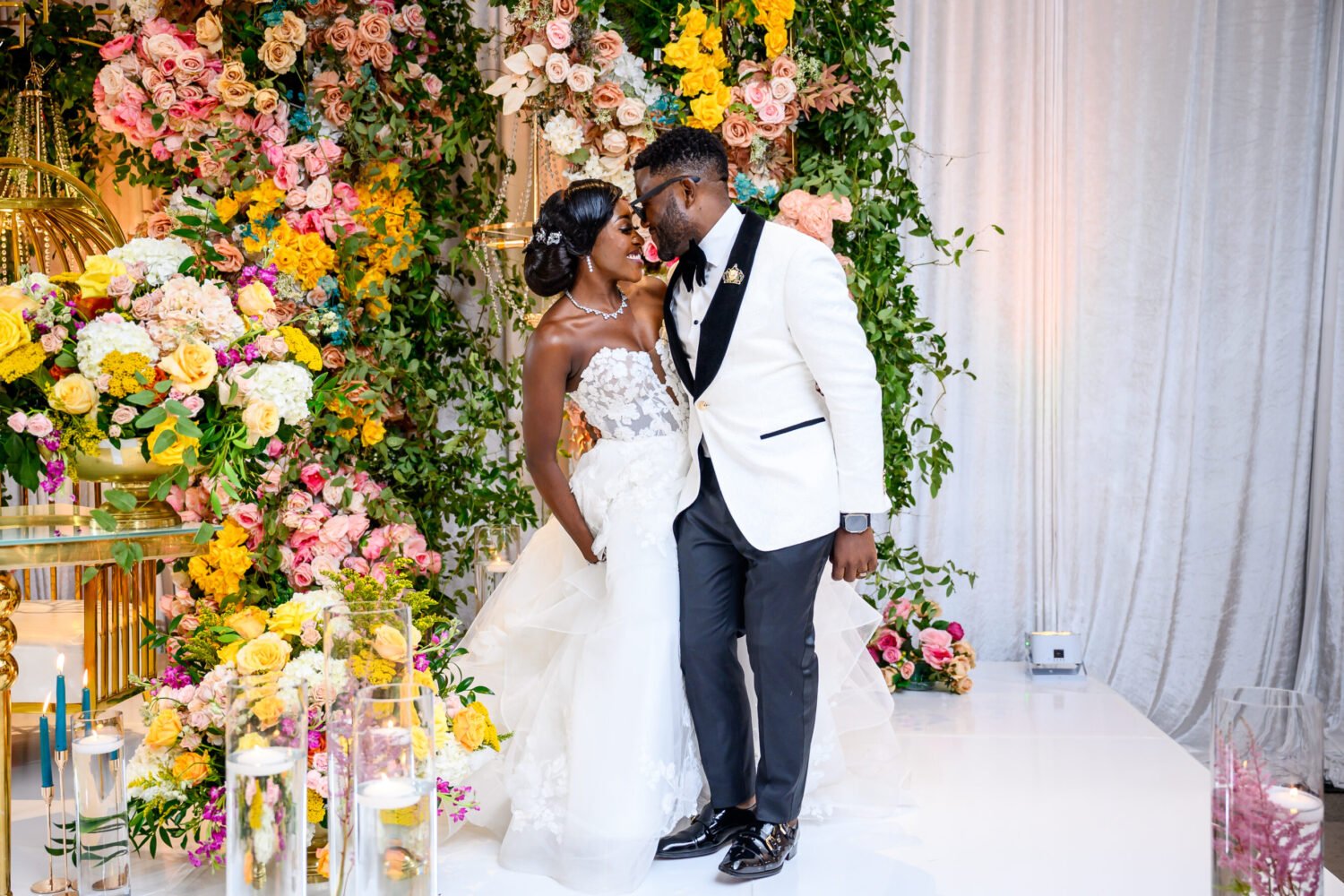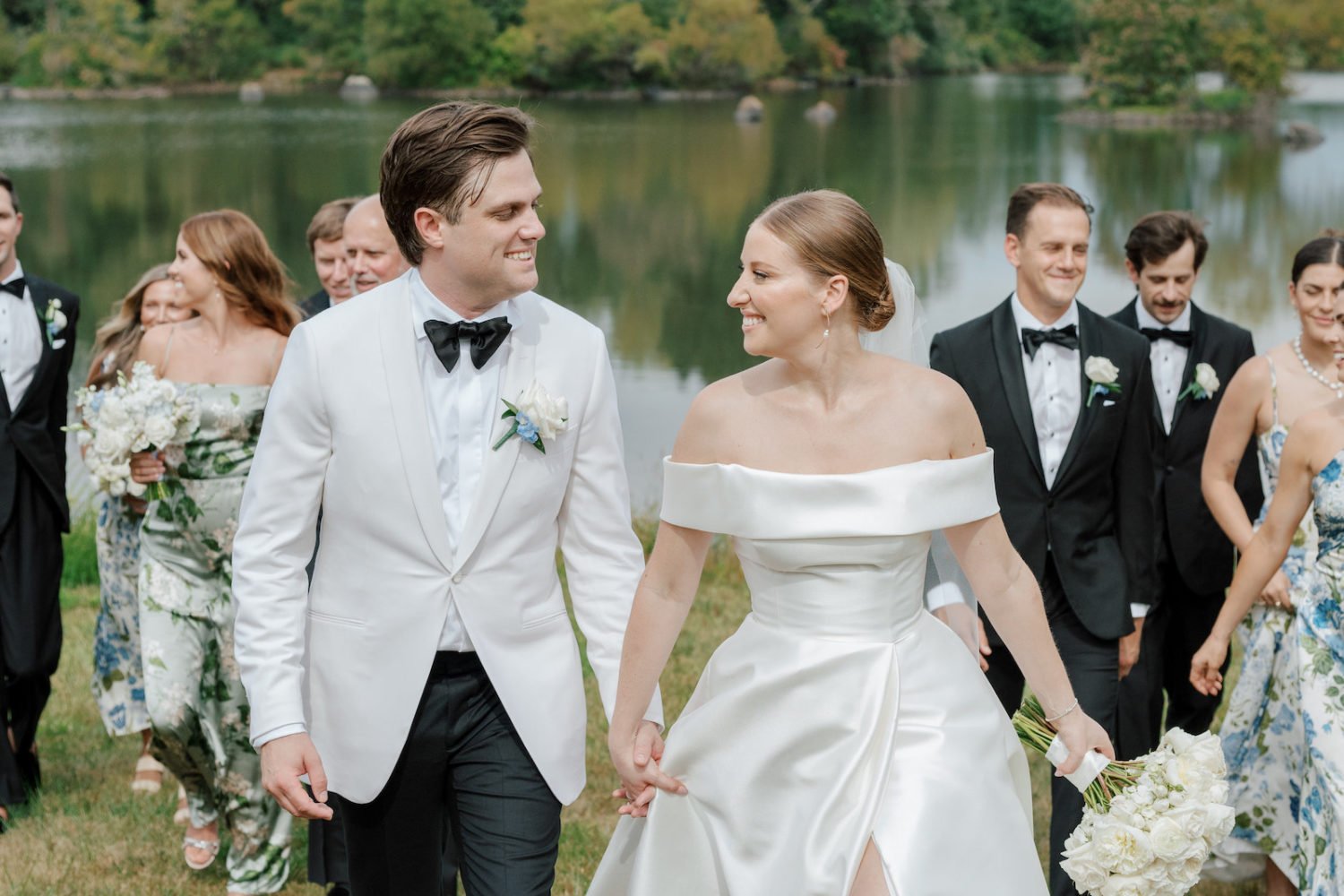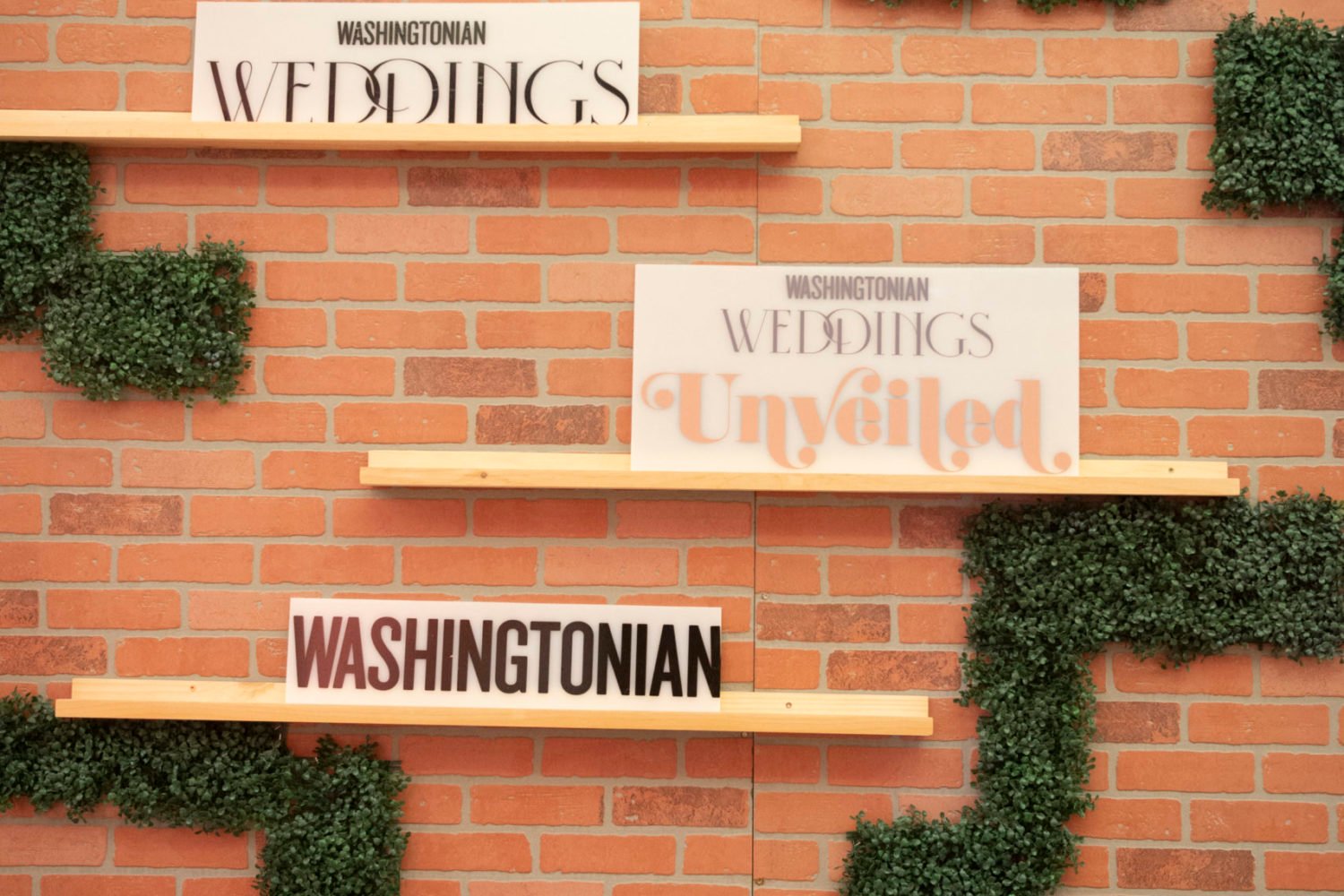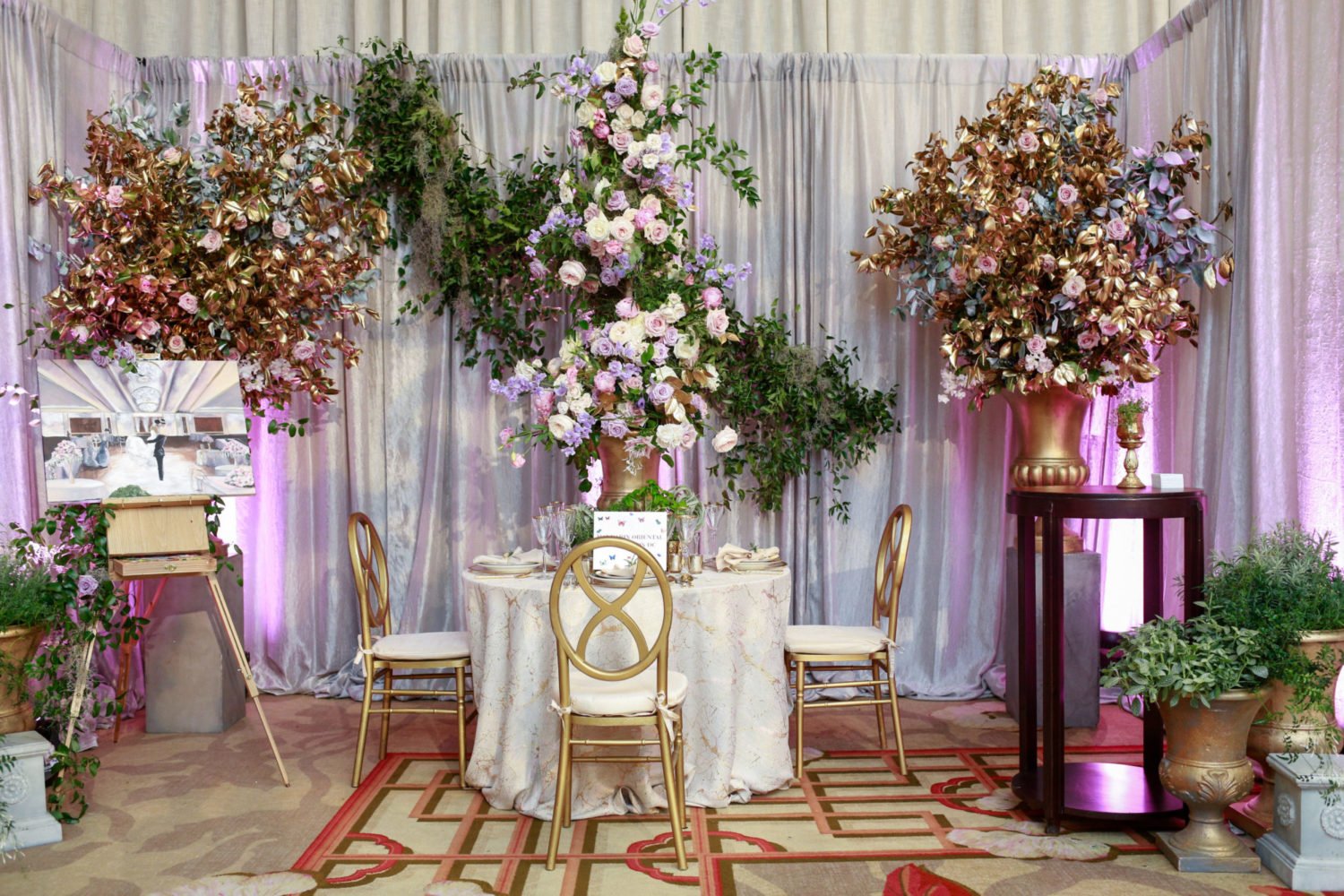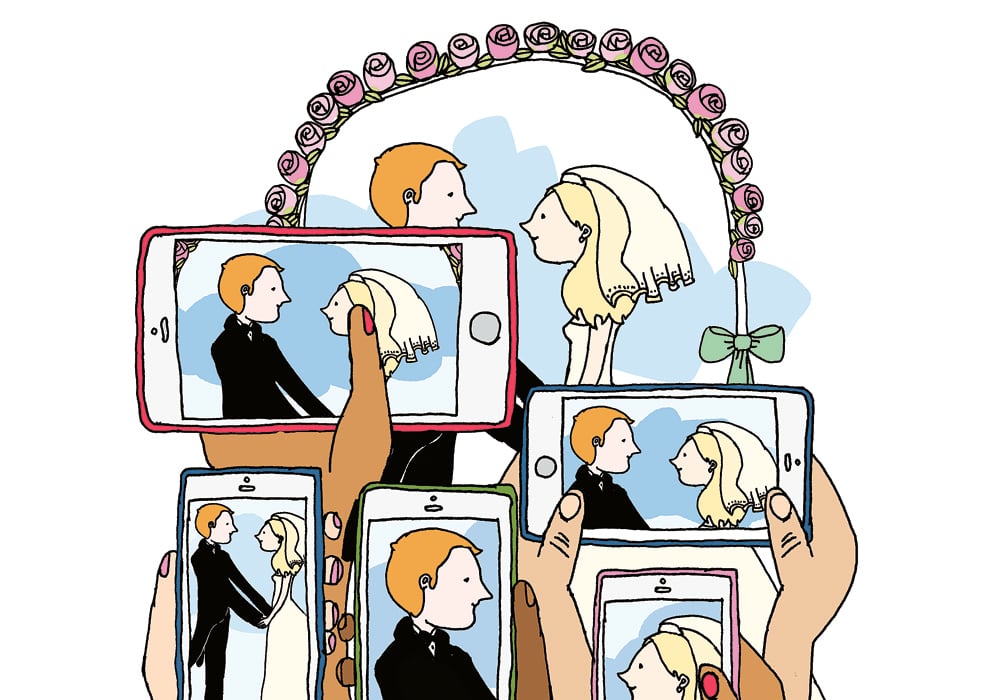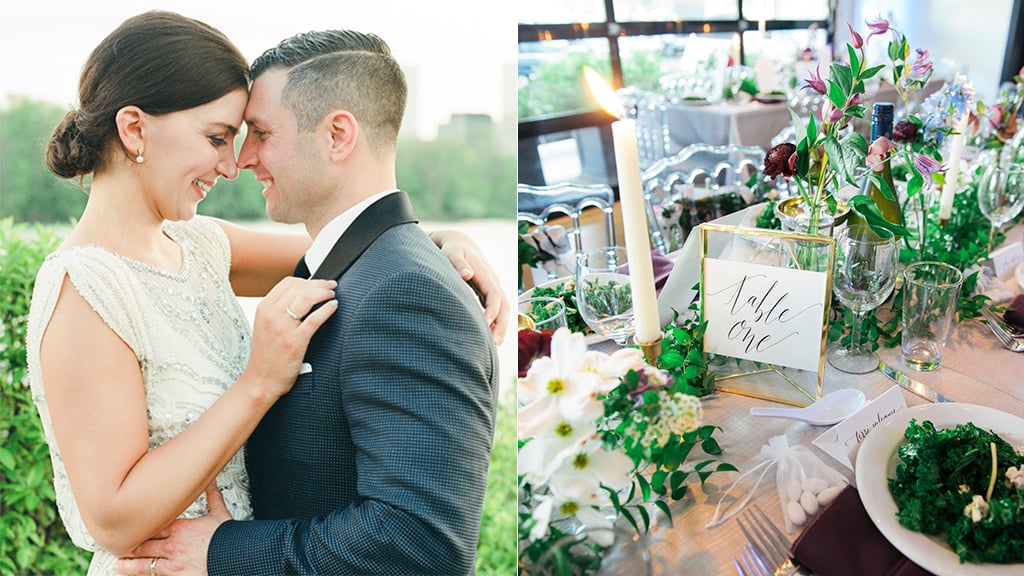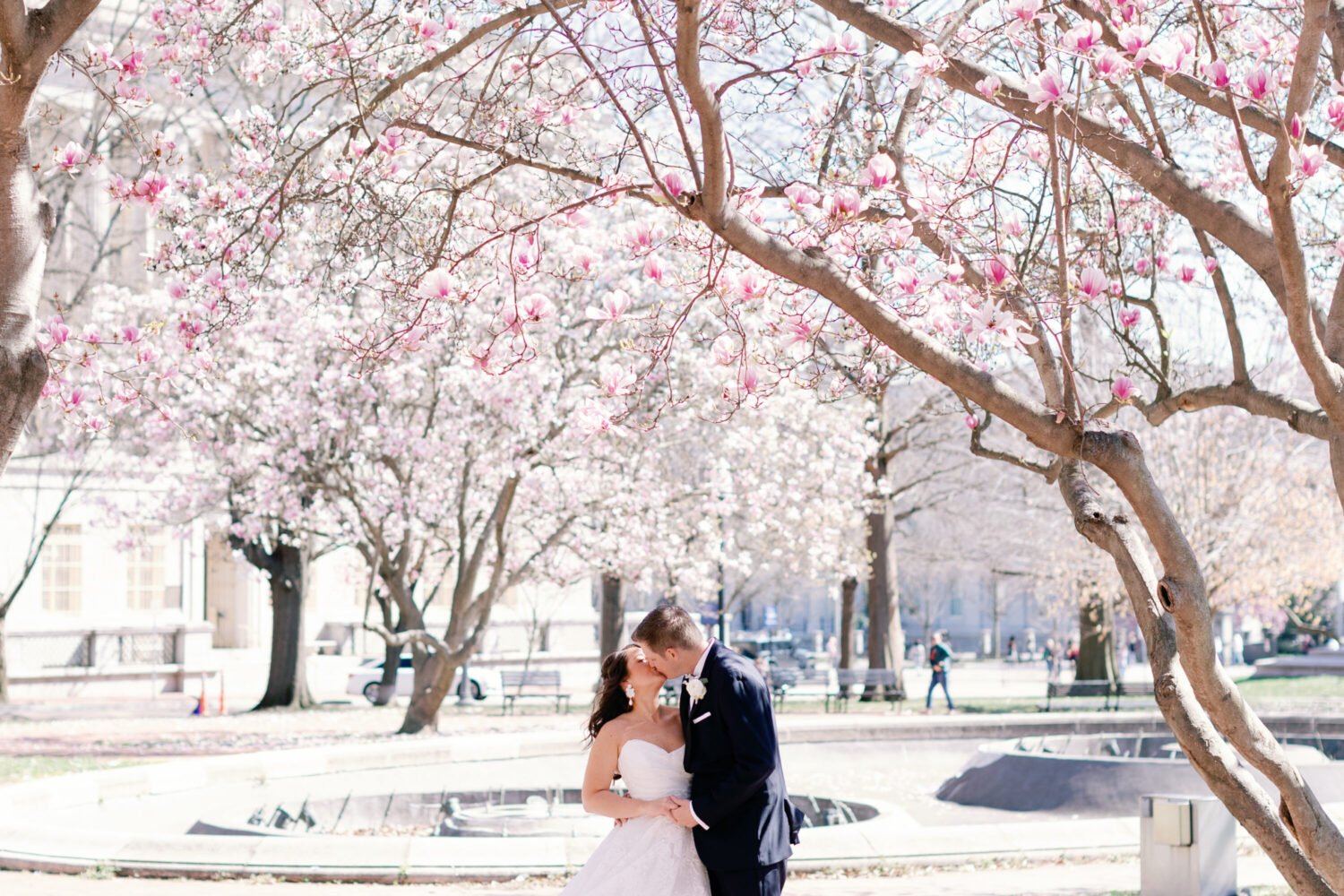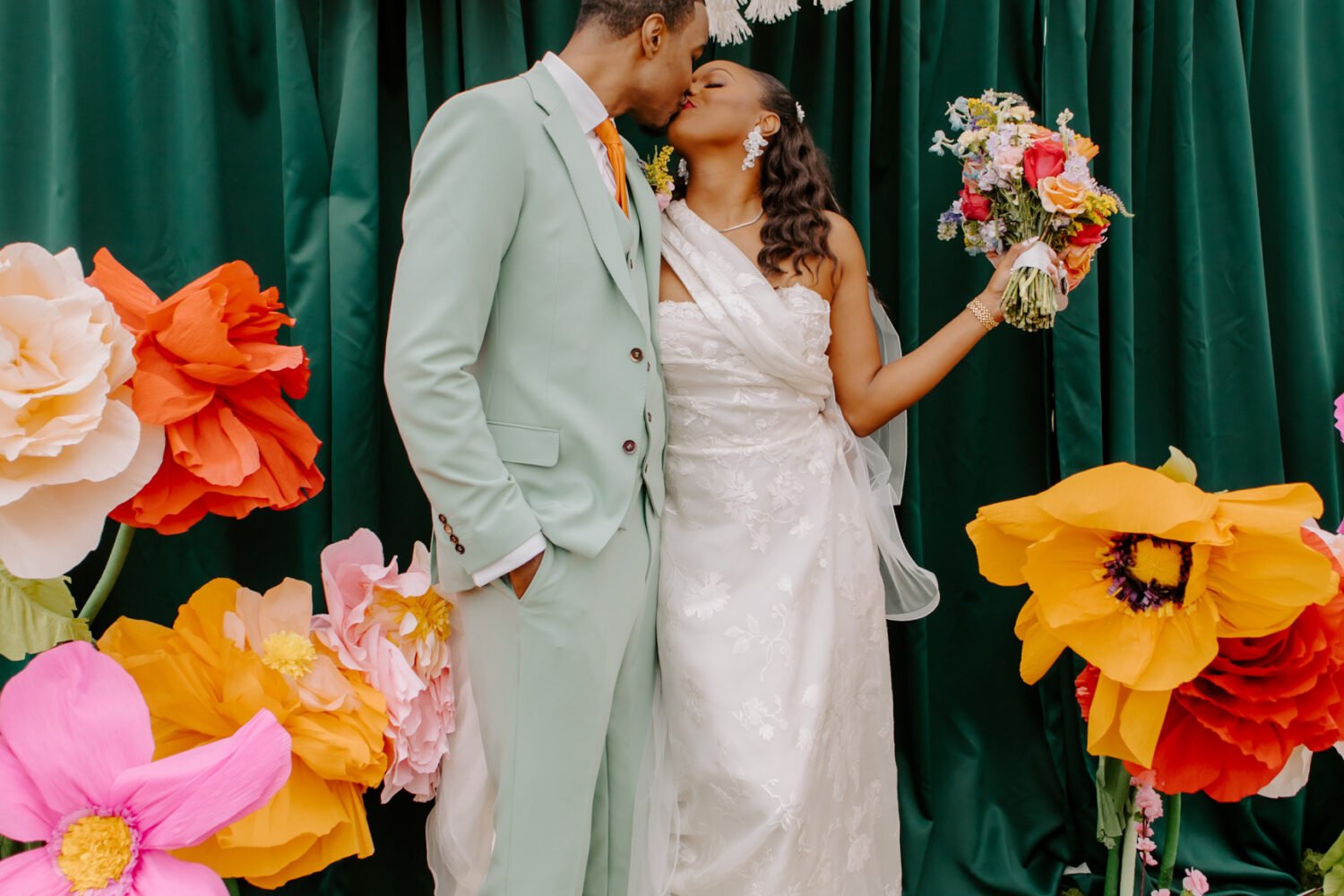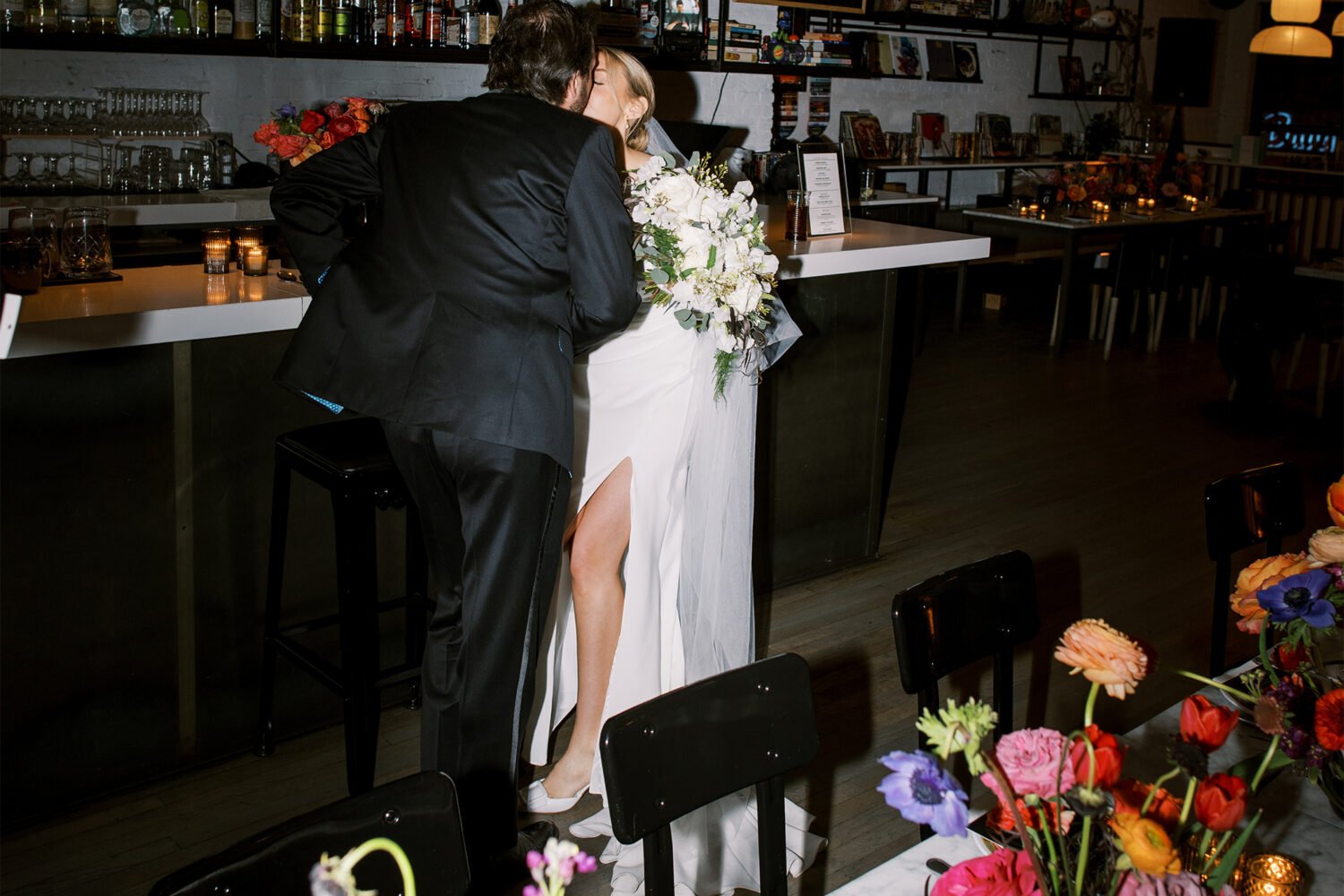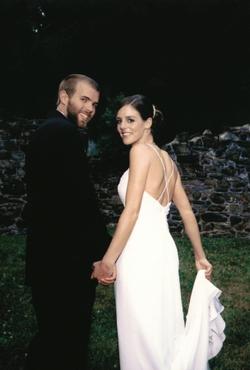
I started dating Chris when I was 16, right after getting my driver’s license. We went to a private school in Pennsylvania. He was a junior; I was a sophomore. He was my first serious crush.
On our first date, we got takeout, had a picnic in the park, and talked for hours. By the time I got home, I was floating.
Over the next five years, we had our ups and downs, including the heartache of living in separate time zones during college. There were tears and fights, but the distance seemed to make our relationship stronger.
If you had told me after our first date that Chris and I would get married, I might have believed you. On June 25, 2005, when I was 21 and he was 22, that’s what we did. His aunt handled the flowers, friends made the cake and snapped the photos, and my brother-in-law—a minister—performed the ceremony.
Before I knew it, we were moving into our first apartment, starting our first jobs, and having our first marital argument. All that, plus graduating from college, in less than six months. It was a lot to handle at our ages.
Still, we never thought we were too young, and neither did our families. My parents met in high school and married right out of college. Chris’s parents married later, but they weren’t shocked by our engagement—I’d been part of the family for years.
Three years later, we’re still among just a handful of our friends who have gotten married. When people notice my ring finger, they usually ask, “How old are you?” When I tell them I’m 24, I have to stifle a smile as they try to hide their surprise.
Why do people marry young?
Chris and I have no regrets about our decision to marry young, but it’s hard to ignore that we’re part of the minority—especially in Washington, where careers often upstage relationships.
Fifty years ago, the average age for men and women at first marriage was 23 and 20. Now it’s 27 and 25.
Experts say couples today are more content to live together for a long time without getting married. Many want to establish financial and professional security first—something that’s not easy for people in their early twenties.
According to researchers, 30 to 50 percent of all first marriages end in separation or divorce. A recent University of Illinois study found an even higher divorce rate for couples who wed in their teens or early twenties. That’s not something for me and Chris to toast to.
So why do people marry young? Marriage counselors say some meet their partners early in life, can’t picture themselves apart, and decide they’re ready. For other couples, religious beliefs play a role. Family pressures, unplanned pregnancies, and military deployments prompt young couples to walk down the aisle.
By the time Chris and I got married, we’d spent nearly a quarter of our lives together. We knew we’d face challenges we might avoid if we waited, but we were excited to see what married life had in store.
Young Couples Face Unique Challenges
People were full of advice for me. They warned me that finances might strain our marriage, and that it would take time to overcome the growing pains of living together.
My biggest challenge turned out to be different: When I got married, my three best friends, whom I’d known since second grade, were still in college—I had graduated a year early. They would chat about dating and classes, and I would talk about my job. It felt strange to have so little in common.
“Marriage can strain relationships between a married person and single friends because they’re in very different life stages,” says DC marriage counselor Keith Miller. The strain can seep into a marriage when one spouse blames the other for the damaged friendships—a source of tension Chris and I had to work through early on.
Experts say some young couples struggle with unrealistic expectations: A bride might assume that wearing a ring and saying his vows will force her new husband to grow up.
Others are still learning to communicate. Alexandria therapist Judy Neary worked with a couple who hadn’t decided how they’d handle their finances: He thought they’d combine bank accounts, as his parents had; she’d grown up with her mother and assumed they’d pay their own bills.
Families can also be an issue. At ages 20 to 22, most people are on the brink of independence, but marriage speeds up the process. Sometimes it can be hard for parents to let go of their kids—and vice versa.
“It’s fine for parents to be involved in their kid’s marriage, but only to a point,” says Miller.
When Dan and Karen Hertel struggled financially during their first year of marriage, their parents helped with babysitting and living expenses. The Leesburg couple, who had married after learning Karen was pregnant at 19, were earning a combined $30,000. They’d both dropped out of James Madison University and lived in a small apartment with their infant son and three cats, scrimping on groceries and trying to make ends meet.
That was eight years ago. Now Karen is an analyst for a consulting firm, and Dan works part-time and takes care of the couple’s two boys.
“The first year was hard,” says Karen. “I always say, ‘If we can make it through that, we can make it through anything.’ ”
Young Marriages Can Have Unique Strengths
Anne and Daniel Guarnera of Arlington started dating during their senior year of high school. She was 21 when they married; he was 22. They both spent a semester studying abroad during college and cultivated a love for traveling. Now they’ve put living abroad on their to-do list.
“We’ll settle down when we’re older,” says Anne. They don’t plan to start a family for at least six years.
Miller says these kinds of carefree, shared experiences give young marriages their strength. Couples who marry older are usually more tied down by responsibilities, and many face the pressure of starting a family. Younger couples can focus on their relationship.
They also have more time to get to know each other. Some young couples have practically grown up together, often becoming better matched than couples who meet later in life. “The sense of loyalty that can develop is immense and irreplaceable,” says Elizabeth Sloan, a couples’ counselor who practices in McLean.
Samantha and Jarratt Harvell of Dupont Circle wed in 2003, when they were in their early twenties. They met in eighth grade and started dating in high school. They’ve been together more than ten years and already shared major milestones—graduating from high school, moving away from home, traveling abroad, landing their first jobs, getting a pet.
“Doing these things together has meant that the outcomes affect us both,” says Samantha. “That makes things that much easier and that much more exciting.”
Chris and I will celebrate our third anniversary this month. We’ll probably go to a quiet restaurant, sit for hours, and talk—much like our first date.
We’ll marvel at how long we’ve been together and share our favorite memories—proms, Christmas dances, college visits, our wedding. Then we’ll talk about plans for the future, like where we hope to be living in ten years. Will we go back to school? Maybe. Will we travel? Perhaps. Will we start a family? Eventually. We’re not in a rush.
Related:
Washingtonian Wedding Guide
More>> Bridal Party Blog | Wedding Guide | Wedding Vendor Search

